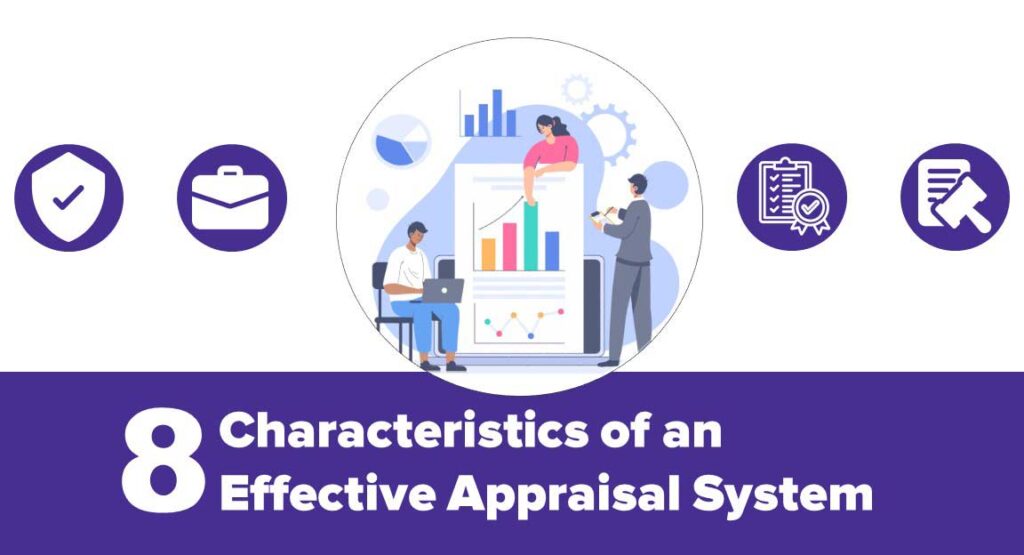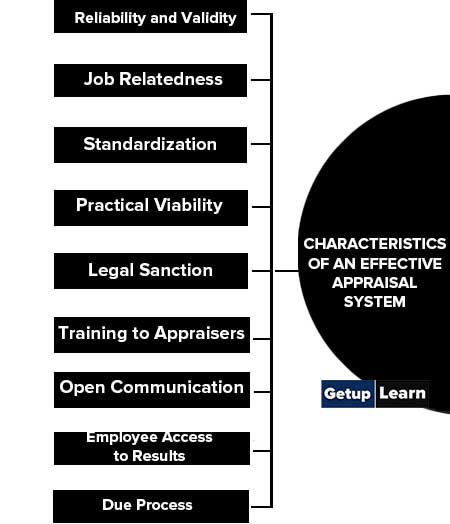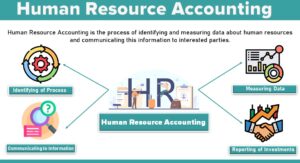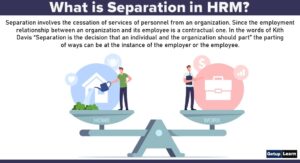
Table of Contents
8 Characteristics of an Effective Appraisal System
A performance appraisal system should be effective as a number of crucial decisions are made on the basis of the score or rating given by the appraiser, which in turn, is heavily based on the appraisal system. An appraisal system, to be effective, should possess the following essential 8 characteristics of an effective appraisal system:
- Reliability and Validity
- Job Relatedness
- Practical Viability
- Legal Sanction
- Training to Appraisers
- Open Communication
- Employee Access to Results
- Due Process

Reliability and Validity
An Appraisal system should provide consistent, reliable, and valid information and data, which can be used to defend the organization even in legal challenges. If two appraisers are equally qualified and competent to appraise an employee with the help of the same appraisal technique, their ratings should agree with each other.
The technique demonstrably satisfies the conditions of inter-rater reliability. Appraisals must also satisfy the condition of validity, by measuring what they are supposed to measure.
For example, if the appraisal is made for the potential of an employee for promotion, it should supply the information and data relating to the potential of the employee to take up higher responsibilities and carry on activities at a higher level.
The appraisal technique should measure the* performance and provide information on job-related activities/areas.
Standardization
Appraisal forms, procedures, administration of techniques, ratings, etc., should be standardized as appraisal decisions affect all employees of the group.
Practical Viability
The techniques should be practically viable to administer, possible to implement, and economical to undertake continuously.
Legal Sanction
Appraisals must meet the laws of the land. They must comply with provisions of various statutes relating to labor.
Training to Appraisers
Because appraisal is important and sometimes difficult, it would be useful to provide training to appraisers viz., some insights and ideas on rating, documenting appraisals, and conducting appraisal interviews. Familiarity with rating errors can improve the rater’s performance and this may inject the needed confidence in appraisers to look into performance ratings more objectively.
Open Communication
Most employees want to know how well they are performing the job. A good appraisal system provides the needed feedback on a continuing basis. The appraisal interviews should permit both parties to learn about the gaps and prepare themselves for the future.
To this end, managers should clearly explain their performance expectations to their subordinates in advance of the appraisal period. Once this is known, it becomes easy for employees to learn about yardsticks and, if possible, try to improve their performance in the future.
Employee Access to Results
Employees should know the rules of the game. They should receive adequate feedback on their performance. If performance appraisals are meant for improving employee performance, then withholding appraisal results would not serve any purpose.
Employees simply cannot perform better without having access to this information. Permitting employees to review the results of their appraisal allows them to detect any errors that may have been made. If they disagree with the evaluation, they can even challenge the same through formal channels.
Due Process
It follows then that formal procedures should be developed to enable employees who disagree with appraisal results (which are considered to be inaccurate or unfair). They must have the means for pursuing their grievances and, having them addressed objectively.
Performance appraisal should be used primarily to develop employees as valuable resources. Only then it would show promising results. When management uses it as a whip or fails to understand its limitations, it fails. The key is not which form or which method is used (Mathis and Jackson).
What are the characteristics of an effective appraisal system?
These are the essential 8 characteristics of an effective appraisal system:
1. Reliability and Validity
2. Job Relatedness
3. Standardization
4. Practical Viability
5. Legal Sanction
6. Training to Appraisers
7. Open Communication
8. Employee Access to Results
9. Due Process.















